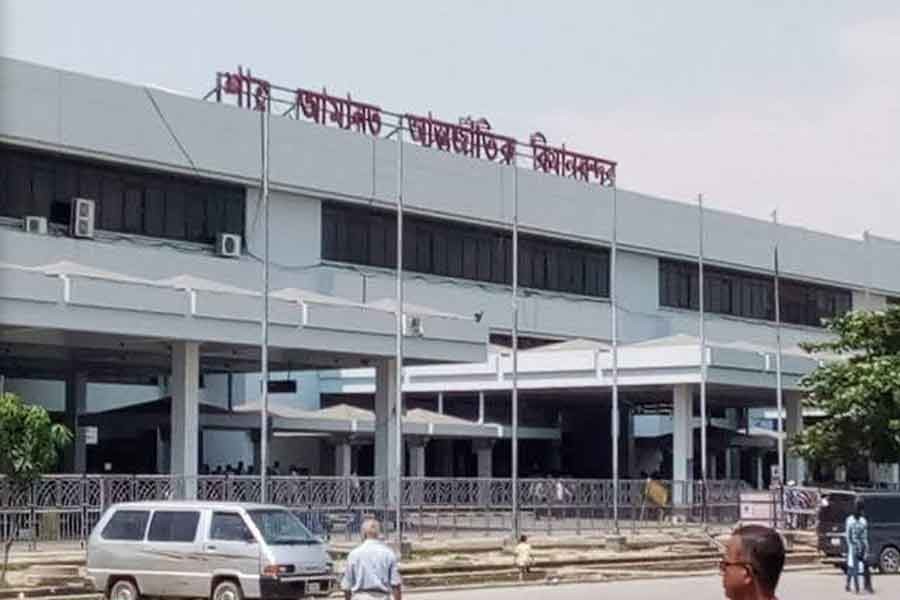Saif
Senior Member
- Jan 24, 2024
- 12,970
- 7,086
- Origin

- Residence

- Axis Group

Date of Event:
Jun 8, 2025
Covid-19 cases on the rise as new variant spreads
Partha Shankar SahaDhaka
Published: 07 Jun 2025, 18: 07

Many people say things like, “Where is Covid now? It’s long gone.” And they’re not entirely wrong. The global pandemic has largely been contained in most parts of the world. However, the Directorate General of Health Services (DGHS) still provides daily updates on the Covid-19 situation. According to DGHS data, the country often reports zero cases for many days, and occasionally, one or more infections are recorded.
Covid-19 cases have been on the rise again in the country since May this year, and a highly transmissible new variant of novel coronavirus has also detected. Neighbouring India already reported many cases of the new variants, and experts fear its impact could reach Bangladesh as well. They, however, assured people that although Covid-19 is rising, the situation is not yet alarming.
According to DGHS data, the country saw 23 Covid-19 cases in April and 86 more in May. One person died from Covid-19 on Thursday, 5 June.
Data from the International Centre for Diarrhoeal Disease Research, Bangladesh (icddr,b) shows that three people were infected with Covid-19 during the last week of April, and the tally increased to 25 by the last week of May,
Mostafizur Rahman, head of Virology Laboratory at icddr,b, told Prothom Alo, “We are seeing a rising number of Covid-19 patients. Apparently, all of the infected individuals have contracted a new variant named XFG. Besides, another variant called XFC has also been detected. Both are subvariants of the powerful Omicron JN.1 variant.”
“Almost all patients are infected with the XFG variant among the samples we’ve received. If we do not adhere to health guidelines, this variant could spread further. Elderly individuals and those with pre-existing health conditions could face serious risks.”
Meanwhile, a new Covid-19 variant –NB.1.8.1– spread in India. According to a World Health Organisation (WHO) bulletin published on 23 May, this variant is spreading rapidly and has a high transmission rate. As of 18 May, genome sequencing has identified this variant in 518 patients across 22 countries. The WHO reports that although the overall number of cases is still low, it has increased by more than 2 per cent compared to the previous week.
Vaccination advised again
At present, people show little interest in getting Covid-19 vaccines in Bangladesh. According to the DGHS, only 43 people, mostly travellers going abroad, received the vaccine from 1 January to 8 March this year.
Dr Mushtuq Hussain believes that elderly people and those with complex disease should get vaccinated. In addition to vaccination, people must follow health guidelines, including handwashing and wearing masks. These habits must be reinstated, he insisted.
AFM Shahabuddin Khan, programme manager of Expanded Programme on Immunisation (EPI), said that the government has an adequate stock of Covid-19 vaccines. “Even though vaccines are available, people show less interest in getting vaccinated.”
The government is also considering restarting vaccination efforts because of the deteriorating Covid-19 situation. At a meeting of the EPI on 22 April, it was recommended that vulnerable populations be encouraged to get vaccinated.
Partha Shankar SahaDhaka
Published: 07 Jun 2025, 18: 07
Many people say things like, “Where is Covid now? It’s long gone.” And they’re not entirely wrong. The global pandemic has largely been contained in most parts of the world. However, the Directorate General of Health Services (DGHS) still provides daily updates on the Covid-19 situation. According to DGHS data, the country often reports zero cases for many days, and occasionally, one or more infections are recorded.
Covid-19 cases have been on the rise again in the country since May this year, and a highly transmissible new variant of novel coronavirus has also detected. Neighbouring India already reported many cases of the new variants, and experts fear its impact could reach Bangladesh as well. They, however, assured people that although Covid-19 is rising, the situation is not yet alarming.
According to DGHS data, the country saw 23 Covid-19 cases in April and 86 more in May. One person died from Covid-19 on Thursday, 5 June.
Data from the International Centre for Diarrhoeal Disease Research, Bangladesh (icddr,b) shows that three people were infected with Covid-19 during the last week of April, and the tally increased to 25 by the last week of May,
Mostafizur Rahman, head of Virology Laboratory at icddr,b, told Prothom Alo, “We are seeing a rising number of Covid-19 patients. Apparently, all of the infected individuals have contracted a new variant named XFG. Besides, another variant called XFC has also been detected. Both are subvariants of the powerful Omicron JN.1 variant.”
“Almost all patients are infected with the XFG variant among the samples we’ve received. If we do not adhere to health guidelines, this variant could spread further. Elderly individuals and those with pre-existing health conditions could face serious risks.”
Meanwhile, a new Covid-19 variant –NB.1.8.1– spread in India. According to a World Health Organisation (WHO) bulletin published on 23 May, this variant is spreading rapidly and has a high transmission rate. As of 18 May, genome sequencing has identified this variant in 518 patients across 22 countries. The WHO reports that although the overall number of cases is still low, it has increased by more than 2 per cent compared to the previous week.
Vaccination advised again
At present, people show little interest in getting Covid-19 vaccines in Bangladesh. According to the DGHS, only 43 people, mostly travellers going abroad, received the vaccine from 1 January to 8 March this year.
Dr Mushtuq Hussain believes that elderly people and those with complex disease should get vaccinated. In addition to vaccination, people must follow health guidelines, including handwashing and wearing masks. These habits must be reinstated, he insisted.
AFM Shahabuddin Khan, programme manager of Expanded Programme on Immunisation (EPI), said that the government has an adequate stock of Covid-19 vaccines. “Even though vaccines are available, people show less interest in getting vaccinated.”
The government is also considering restarting vaccination efforts because of the deteriorating Covid-19 situation. At a meeting of the EPI on 22 April, it was recommended that vulnerable populations be encouraged to get vaccinated.
Last edited:

 World Affairs
World Affairs









